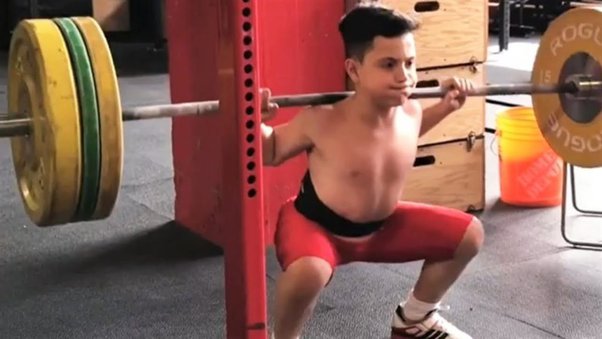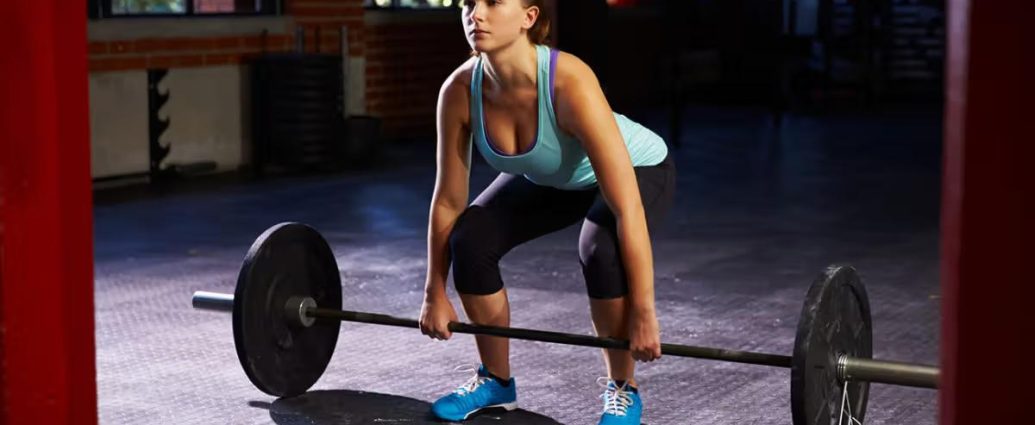In the past, watching TV shows on weightlifters, one of the attention was that many of the athletes had a low stature. Because of this, the rumor spread that lifting weights could interfere with the growth process for children and young people. Therefore, the scientists decided to investigate the issue and do several research. What was he found?
Well, contrary to what was stated for many years, science determined that weight exercises bring benefits, regardless of the age at which they are practiced. Of course, as a review in Healthy Sports puts it, weight training programs should be individualized according to age, fitness, and personal goals. To learn more about it, keep reading.
Why Is It Thought That Lifting Weights Affects Growth?
The relationship between weightlifting and growth has been the subject of controversy for many years. In fact, to date, some people prevent their children from practicing this type of sport at an early age, with the firm belief that this will prevent them from growing. However, this is one of the most widespread myths in the sports industry.
While it is true that many weightlifters are of low stature, that does not mean that the resistance work has slowed its growth. The truth is that low-stay athletes tend to stand out more in heterophilic compared to tall people. The reason? Mecically they have more facilities, since their arms are shorter and the tour is shorter than when they have long arms.
However, another hypothesis suggests that lifting weights puts pressure on the bones, which prevents proper maturation. However, this was also denied by science. Research in Translational Pediatrics explains that weightlifting problems can occur as a result of poor execution of exercises, lack of supervision, and inadequate training programs.
In such circumstances, the risk of injury to immature bone growth plates is high. Still, it’s not something that happens concretely when lifting weights. All sporting or recreational activity carries the risk of this injury.

So What Does Science Say About Weightlifting and Growth?
Ultimately, the claim that weights affect the growth of children and adolescents is nothing more than a myth. To date, there is no scientific research or evidence to support this belief. A review released in the Clinical Journal of Sports Medicine concluded that weight training and endurance machines are safe and do not negatively impact growth at an early age.
Meanwhile, a study shared by the Argentine Society of Pediatrics details that strength training in children and adolescents has benefits at the physical, social, and psychological levels. In particular, it is associated with the following effects:
- Increased strength and bone resistance index.
- Decrease in the risk of fractures and injuries associated with sport.
- Increased physical endurance.
- Better self-esteem.
- Greater interest in sports.
At What Age Is It Convenient to Train With Weights?
Exercises with weights (external loads) should be performed with some caution. It became clear that there was no problem starting their practice at an early age. Still, care must be taken, and an individualized training plan, according to age, health status, and physical condition.
Thus, the ideal thing is to start first with exercises with one’s body weight, such as squats, dominated, arm push-ups, etc. This allows you to acquire a good technique, and improve skill and posture.
Once you gain a certain level of resistance, it is possible to start lifting weights. Although there is no specific age, it can be from 10 or 12 years. That’s right, always under the supervision of a professional coach.
Tips to Start Lifting Weights Safely:
As stated in research in the journal, the success of resistance training in young people goes hand in hand with an appropriate exercise technique and qualified supervision.
In this sense, the first step in lifting weights safely is to request the intervention of a professional coach. This, first of all, will evaluate the condition of the minor and the most convenient exercises according to its characteristics. Likewise, it will orient towards the proper implementation of the activities.
Other general recommendations are:
- Move forward gradually: you can’t pretend to lift a lot of weight or do many repetitions in the first practices. You have to take the pieces of training calmly, starting with light weights until you increase strength and endurance.
- To set realistic targets: in the case of children, the goal is not to drastically increase the size of the muscles. The main benefit is better muscle performance.
- Doing dynamic training: the coach depends a lot on the kid continuing his workouts. This has to be nice and safe, always supervised.
- Consulting your doctor or pediatrician: This is quite important if the child has any particular physical or mental condition. Your doctor will evaluate whether it is good to start a weightlifting program.
What Can Affect Growth in Children And Adolescents?
Weightlifting does not affect the growth of minors, according to studies. However, other factors can negatively impact this process. According to a review shared in Advanced Biomedical Research, this includes poor nutrition, exposure to contaminated environments, lack of rest, and genetics.
Therefore, if there are plans to start a weight training program at an early age, it is essential to seek professional accompaniment and complement the routine with healthy habits in terms of nutrition and rest. As far as possible, advice must also be provided to a nutritionist.

